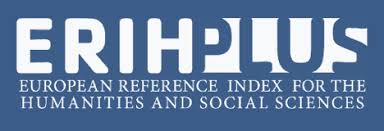№2, 2018
Some distinctive categories of information and industrial economy are indicated. The scientific-theoretical and methodological approaches, influencing the formation and development of the modern information economy, based on the social-oriented liberal market economy, are investigated. The main tasks and stages of the formation of economic science and the general economy are described. The features, levels, types of the global and national system of economic relations are investigated. The main economic categories of laws, theories of general character regulating economic development are thoroughly analyzed. Specific research and approach methods and economic-mathematical and econometric research methods of information economy are described. The article mainly focuses on modern economic theories and concepts that determine the potential export-oriented development of the information economy (pp.84-96).
- “Azərbaycan - 2020: Gələcəyə Baxış” İnkişaf Konsepsiyası, Bakı, 29 dekabr 2012-ci il, http://www.president.az
- “Azərbaycan Respublikasında İnformasiya Cəmiyyətinin inkişafına dair 2014-2020-ci illər üçün Milli Strategiya, Bakı, 2 aprel 2014-cü il, http://www.president.az
- Milli iqtisadiyyat və iqtisadiyyatın əsas sektorları üzrə Strateji Yol Xəritələri, Bakı, 6 dekabr 2016-cı il, http://www.president.az
- Качуровский Е.П. Современная мировая экономика. Минск, 2012, 582 с.
- Юнусов Л.А. Глобализация мировой экономики: понятие и основные этапы // Проблемы современной экономики, 2008, №4(28), http://m-economy.ru/art.php?nArtId=2246
- Фролова Е.Д. Мировая экономика и международные экономические отношения: современное состояние, проблемы и основные тенденции развития //Учебное пособие, Екатеринбург, УрФУ, 2016, 184 с.
- Kuzmiç L.V. Dünyaiqtisadiyyatı, Bakı, “İqtisadUniversitetiNəşriyyatı”, 2013, 625 s.
- Шумпетер Й.А. Теория экономического развития, 2008, 400 с.
- Гринберг Р.С. Экономика современной России: состояние, проблемы, перспективы // Вестник Института экономики РАН, 2015, №1, с.10-28.
- Сударкина Е.С. Анализ структуры российской экономики на современном этапе и перспективы развития // Экономика и управление, 2016, №1, с. 57-58.
- Əliyev Ə.Q. İnformasiya və biliklərə əsaslanan ümumdünya iqtisadiyyatının formalaşma səviyyəsinin struktur təhlili // AMEA-nın Xəbərləri. İqtisadiyyat seriyası, 2016, s. 183-191.
- Кошкин Р.П. Цифровая экономика - новый этап развития информационного общества в России // Стратегические приоритеты, 2017, №3(15), с. 4-15.
- Alguliyev R.M., Aliyev A.G., Abbasova V.A. The study of formation characteristics and development tendencies of international information and knowledge economy //J. Review of knowledge economy, 2017, vol. 4, No.1, p. 7-14.
- Безруких Д.В. Информационная экономика как драйвер инновационного развития экономики РФ // Проблемы современной экономики, 2016, №35, с. 116-120.
- Farshad F.M., Nasser E. et al. Appropriate theoretical framework for understanding and analyzing economic issues in knowledge-based economy // Journal of the knowledge economy, 2017, vol. 8, issue 3, p.957-976.
- Попова Е.В. Переход от индустриального общества к обществу информационных услуг // В мире научных открытий, 2010, №4(10), с. 77-79.
- Макаров В.В., Блатова Т.А. Информационно-коммуникационные технологии как индикатор развития экономики знаний // Российский гуманитарный журнал, 2014, №4, том 3, c. 275- 281.
- Апатова Н.В., Акинина Л.Н., Бакуменко М.А., Бойченко О.В. и др. Информационная экономика: теория, практика, модели //Монография, M., 2016, 428 с.
- Клейнер Г.Б. Экономика. Моделирование. Математика // Избранные труды, М., ЦЭМИ РАН, 2016, 856 с.
- Dima I.C., Man M. Econometrics and scientific management // Modelling and simulation in management, 2015, p.69-96.
- Модели и методы инновационной экономики // Сборник научных трудов, 2015, выпуск 8, М.: ЦЭМИ РАН, МАОН, 197 с.
- Semenyuk E. P., Kotlyarevskyy Ya.V., Kniaziev S.I. et al. Information economy: the formation of special-purpose categorical framework // Science and innovation, 2017, vol. 13, issue 3, p.5-19.
- Roman K. Economical theory of history in a historical context // European journal of the history of economic thought, 2017, vol. 24, issue 2, p.402-403.
- Gürpınar E. Organizational forms in the knowledge economy: a comparative institutional analysis // J Evol Econ, 2016, vol. 26(3), p.501-518.
- Andrew W. Manuel Castells's trilogy the information age: economy, society, and culture // Information communication & society, 2016, vol. 19, issue 12, p. 1673-1678.





.jpg)









